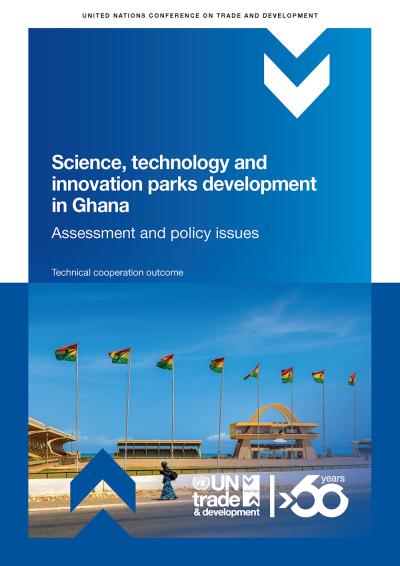
The 2030 Agenda for Sustainable Development recognizes the transformative power of science, technology, and innovation (STI) in driving inclusive, prosperous and environmentally sustainable economies.
STI parks play a pivotal role in fostering innovation ecosystems, nurturing talent and enabling collaboration among researchers, entrepreneurs, and companies. They contribute to technological advancement, job creation and economic diversification.
UNCTAD’s project “Science, Technology and Innovation Parks for Sustainable Development: Building expertise in policy and practice in selected Asian and African countries” focuses on bolstering capacity in Ghana, Mongolia, Mozambique and Uzbekistan to help these countries leverage STI parks for achieving Sustainable Development Goals (SDGs).
Key points
- STI parks as growth catalysts: These parks are hubs of innovation and entrepreneurship, driving regional and national economic growth. They bring together public and private stakeholders to foster collaboration and knowledge sharing, while also providing platforms for capacity-building and skills training. By supporting the development and commercialization of new technologies, STI parks contribute to diversifying economies, creating jobs and nurturing entrepreneurial ecosystems.
- Ghana's innovation leadership in the region: The country stands out as a regional leader in STI, performing above the African average in key areas like human capital, infrastructure and business sophistication, as recognized by the Global Innovation Index. The country’s initiatives, including the 2024 STI Policy, aim to further strengthen its position by integrating space science, increasing investments in research and development and enhancing collaboration between STI stakeholders. Ghana's well-developed policy environment and growing entrepreneurial culture, especially within higher education institutions, underscore its potential as an innovation hub.
- Challenges to overcome: Despite Ghana’s strengths, systemic challenges limit the effectiveness and growth of STI parks. Slow implementation of updated policies, low public awareness and inadequate funding hinder progress. Weak coordination among government ministries, limited public-private partnerships and insufficient infrastructure further complicate the development of these parks. Many incubators and hubs lack the resources and expertise needed to support innovation and entrepreneurship effectively. Addressing these barriers is critical to unlocking the full potential of Ghana’s STI park ecosystem.
- Path forward: To overcome these challenges, Ghana should prioritize the implementation of its 2024 STI Policy, supported by robust monitoring and evaluation mechanisms. Strengthening institutions to foster collaboration among STI stakeholders and enhancing inclusivity by involving marginalized groups, such as women and youth, are also essential steps. Building capacity through targeted training for entrepreneurs, researchers and policymakers will equip them with the skills needed to drive innovation and entrepreneurship.
By addressing these challenges, Ghana can unlock the full potential of STI parks to drive economic diversification and inclusive, sustainable development.
This report was prepared under the UNCTAD Project on Science, Technology and Innovation Parks for Sustainable Development: Building expertise in policy and practice in selected Asian and African countries, financed by the 2030 Sustainable Development Agenda Sub-Fund under the United Nations Peace and Development Fund.


